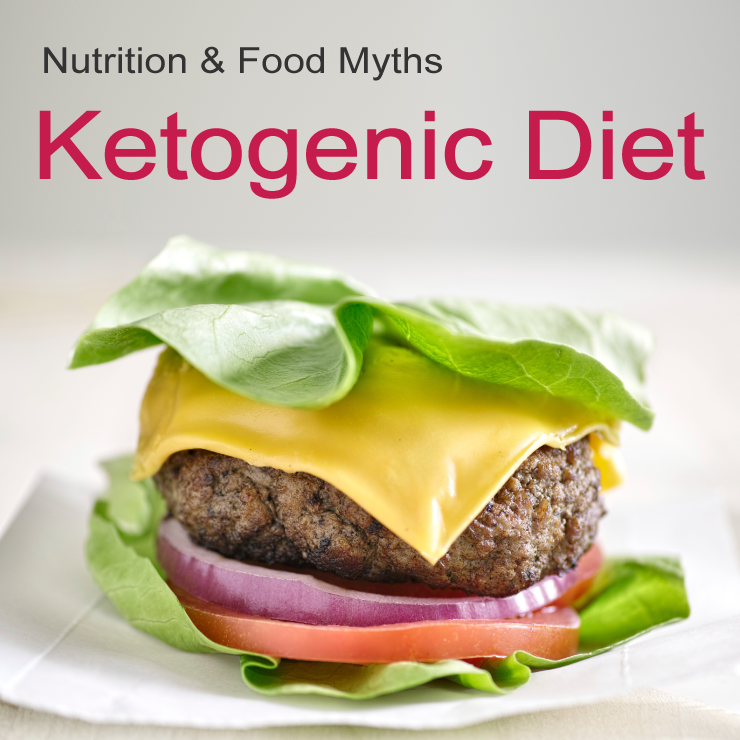 Many of my clients are asking about the ketogenic diet and whether they should follow it to fight cancer. Let’s take a closer look at this diet and the science behind it.
Many of my clients are asking about the ketogenic diet and whether they should follow it to fight cancer. Let’s take a closer look at this diet and the science behind it.
What is it?
The ketogenic diet was originally designed for patients with epilepsy. It is high in fat and very low in carbohydrates.
The body typically uses carbohydrates as its main source of energy. Carbohydrates are broken down into glucose, which is an important energy source for the brain. Following the ketogenic diet means that there is very little carbohydrate available for fuel, so the body is forced to use fat as its main energy source. When fat is broken down into energy, compounds called ketone bodies are formed. The level of ketone bodies in the blood increases, which is called ketosis. Ketosis has been shown to help reduce epileptic seizures.
The ketogenic diet is now being promoted as a possible complementary therapy to be used in combination with cancer treatments. The idea behind this is that by starving the cancer cells of glucose from foods that contain carbohydrates, there will be less sugar available for the cancer cells to grow.
We do not know whether this diet is helpful for cancer, although some small research studies are underway.
The good
- The ketogenic diet helps people with epilepsy have seizures less often.
- In one study, mice fed the ketogenic diet had reduced brain tumour growth and better survival compared to mice fed a high carbohydrate, low fat diet.
- At this point, support for the effectiveness of this diet for cancer in humans is anecdotal. This means that a few individuals have found it helpful but this has not been supported by research.
The not-so-good
- This diet is extremely limited which makes it difficult to stick to. Researchers of the ketogenic diet in brain cancer have found that following the diet negatively affects quality of life in cancer patients.
- Low-carbohydrate diets, such as the ketogenic diet, lower insulin levels and prevent fat storage. As a result, these diets can cause weight loss, which may not be desirable during cancer treatment.
- The ketogenic diet cuts out or severely limits healthy foods like fruits, vegetables, whole grains, beans, and lentils because they contain carbohydrates. All of these foods are recommended for cancer prevention and survivorship, heart health and achieving a healthy weight.
- The ketogenic diet recommends consuming 75% of calories from fat, 20% from protein and only 5% from carbohydrates. A healthy, balanced diet as recommended by the American Cancer Society for cancer prevention and cancer survivors is 25 to 30% fat, 10% to 15% protein and 55% to 60% carbohydrates.
- It is especially important to follow a nutritious diet during cancer treatment, but this diet is deficient in many nutrients such as fibre, calcium, vitamin D, potassium and vitamin C.
- Side effects can make it difficult to eat well during treatment, so strict diets are not usually recommended. This diet can worsen appetite and constipation, side effects that are often already present during cancer treatment. This can lead to not eating well and not getting the nutrients needed to maintain your strength.
The bottom line
The diet has not been shown to be helpful for people dealing with cancer and may be harmful. Talk to your doctor or dietitian before starting a new diet.
In past blog posts I've explored the nutritional aspects of the
macrobiotic diet,
genetically modified organisms, and the
gluten-free diet. Is there a diet or other nutrition trend you want investigated? Tweet me
@80twentyrule or email me at
Christy@ELLICSRkitchen.ca.
References
1 Freeman, JM., Kossoff, EH., & Hartman, AL (2007). The ketogenic diet: one decade later. Pediatrics, 119(3): 535-543.
2 Zhou, W., Mukherjee, P., Kiebish, M. A., Markis, W. T., Mantis, J. G., & Seyfried, T. N. (2007). The calorically restricted ketogenic diet, an effective alternative therapy for malignant brain cancer. Nutr Metab (Lond), 4(5), 5.
3 Schmidt, M., Pfetzer, N., Schwab, M., Strauss, I., & Kämmerer, U. (2011). Effects of a ketogenic diet on the quality of life in 16 patients with advanced cancer: A pilot trial. Nutr Metab (Lond), 8(1), 54.
4 Oncology Nutrition Dietetic Practice Group (2014). Oncology nutrition for clinical practice. Chicago, IL: Academy of Nutrition & Dietetics.
